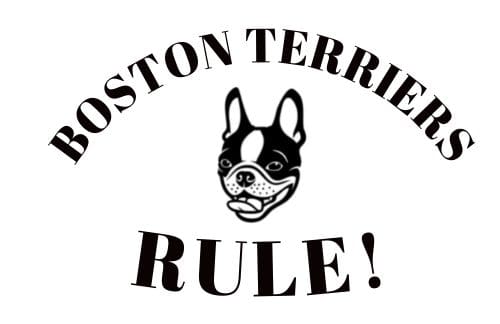Why Is My Boston Terrier Shaking?
So, you’re lounging on the couch with your adorable Boston Terrier curled up beside you. Suddenly, you notice a slight tremor coursing through their body. Your heart skips a beat as you wonder, “Why is my Boston Terrier shaking?” Don’t fret! This article is your comprehensive guide to understanding the various reasons behind those tremors and how you can help your Little Precious.

Understanding the Types and Locations of Boston Terrier Shaking
Boston Terrier shaking can manifest in various ways and locations. From head to paw, these tremors may raise concerns, but not all of them warrant immediate alarm. Let’s delve into the different types and locations of shaking:
Head Shaking
Your Boston Terrier shaking its head vigorously: This behavior could be indicative of several issues, including ear infections, allergies, or even foreign objects lodged in the ear canal. A visit to the vet can help diagnose and treat the underlying cause of head shaking.
Understanding Boston Terrier Head Shaking
Head shaking in Boston Terriers can be a concerning behavior for dog owners. While the occasional head shake is normal and may indicate your dog is simply readjusting their ears or trying to get rid of an irritant, frequent or vigorous head shaking can signal underlying issues that need attention. Here’s an overview of potential reasons for head shaking in Boston Terriers and how to address them:
1. Ear Infections: Ear infections are a common cause of head shaking in dogs. Boston Terriers are prone to ear infections due to their floppy ears, which can trap moisture and create a suitable environment for bacteria or yeast to grow. Signs of an ear infection may include redness, odor, discharge, or excessive scratching at the ears. If you notice these signs, consult your veterinarian for a proper diagnosis and treatment plan.
2. Allergies: Allergies can lead to ear irritation and discomfort, prompting head shaking as your dog attempts to relieve the itchiness. Common allergens for dogs include pollen, dust mites, and certain foods. Your veterinarian can help identify the specific allergen causing the problem and recommend appropriate allergy management strategies, which may include dietary changes or allergy medications.
3. Foreign Objects: Sometimes, foreign objects like plant material, insects, or debris can become lodged in a dog’s ear canal, causing irritation and head shaking. It’s essential to consult your vet if you suspect a foreign object is the issue, as they can safely remove it and treat any related ear problems.
4. Ear Mites: Ear mites are tiny parasites that can infest a dog’s ear canal, leading to intense itching and discomfort. Boston Terriers are susceptible to ear mite infestations. If ear mites are suspected, your veterinarian will conduct a thorough examination and prescribe the appropriate treatment, which may include medicated ear drops.
5. Sensitivity to Medications: Some dogs may experience sensitivity to ear medications or ear cleaning solutions. If your Boston Terrier starts shaking their head after using a specific product, discontinue its use immediately and consult your vet. They can recommend alternative treatments or products that are better suited to your dog’s needs.
6. Neurological Issues: In rare cases, head shaking can be a sign of underlying neurological problems. These issues may affect the nervous system and manifest as unusual head movements. If you observe unusual head shaking patterns or signs of neurological dysfunction, consult your veterinarian for a comprehensive evaluation.
7. Behavioral Reasons: While less common, some dogs may shake their heads as a learned or behavioral response. This can be due to excitement, anxiety, or habit. If head shaking is not linked to any physical issues, it’s essential to address potential behavioral causes through positive reinforcement training or behavioral modification techniques.
It’s important to pay close attention to the frequency, severity, and accompanying symptoms of head shaking in your Boston Terrier. Frequent, severe, or persistent head shaking should prompt a visit to your veterinarian for a thorough examination. Early detection and treatment can prevent further discomfort and complications for your beloved pet.
Keep in mind that your veterinarian is the best resource for diagnosing the underlying cause of head shaking and recommending the appropriate treatment. They can provide guidance specific to your Boston Terrier’s needs and help ensure their overall well-being.
Paw Trembling
If you notice your Boston Terrier shaking it’s paws, it could be due to excitement, anxiety, or even cold temperatures. Sometimes, however, trembling paws might signal an underlying medical condition such as pain or neurological problems. Consulting your veterinarian can help rule out serious issues.
Understanding Boston Terrier Paw Trembling
Observing your Boston Terrier’s paws trembling or shaking can raise concerns about their well-being. While occasional paw trembling can be linked to temporary factors like excitement, anxiety, or cold temperatures, persistent or severe shaking may indicate underlying medical conditions that require attention. Here’s an overview of potential reasons for paw trembling in Boston Terriers and how to address them:
1. Behavioral Factors:
Excitement: Dogs often display excitement through various behaviors, including paw trembling. If your Boston Terrier is particularly excited or anticipates something enjoyable, such as playtime or a treat, they may exhibit trembling in their paws. This is generally considered normal and not a cause for concern.
Anxiety: Anxiety, whether due to separation, loud noises, or unfamiliar situations, can lead to paw trembling in dogs. Calming techniques and positive reinforcement can help alleviate anxiety-related trembling.
Fear or Stress: Boston Terriers may experience trembling paws when they encounter something frightening or stressful. Understanding and addressing the source of their fear is essential for reducing stress-related symptoms.
2. Cold Temperatures:
Dogs, like humans, can experience cold-induced shivering. If your Boston Terrier is exposed to chilly weather, their paws may shake as a response to the cold. Ensure they stay warm in cold conditions and provide them with cozy bedding indoors.
3. Medical Concerns:
Pain: Paw trembling can be a sign of pain or discomfort. Your dog might have an injury or ailment in their paws or limbs, such as a sprain, fracture, or arthritis. If your Boston Terrier displays consistent paw trembling, it’s important to consult your veterinarian to evaluate potential sources of pain.
Neurological Issues: Neurological problems can manifest as trembling in various parts of the body, including the paws. Conditions like seizures or neurological disorders may be responsible for paw tremors. In such cases, a thorough veterinary examination is essential for diagnosis and treatment.
Metabolic or Hormonal Imbalances: Certain metabolic or hormonal imbalances can lead to trembling or shaking in dogs. For example, hypoglycemia (low blood sugar) can cause tremors. Regular check-ups with your vet can help identify and address such imbalances.
Medication Side Effects: If your Boston Terrier is on medication, some drugs may have side effects that include tremors or shaking. It’s important to discuss any concerns with your veterinarian, who can assess the medication’s effects and adjust the treatment plan if necessary.
4. Allergies or Irritants:
Contact with allergens or irritants, such as certain plants or chemicals, may cause paw trembling if your dog’s paws are sensitive to them. Ensure your dog is not exposed to substances that may trigger allergic reactions.
5. Infection:
Paw infections, such as fungal or bacterial infections, can lead to discomfort and paw trembling. Signs of infection may include redness, swelling, or discharge. Your vet can diagnose and treat these conditions effectively.
6. Poisoning:
Ingesting toxic substances can result in various symptoms, including trembling. If you suspect your Boston Terrier has ingested something harmful, seek immediate veterinary attention.
Understanding the specific context, frequency, and accompanying symptoms of paw trembling is crucial for identifying the cause and determining the appropriate course of action. For consistent or severe trembling, consulting your veterinarian is recommended. They can conduct a comprehensive examination, potentially perform diagnostic tests, and provide guidance for addressing the underlying issue to ensure your Boston Terrier’s well-being and comfort.
Full-Body Shivers
Occasional full-body shivers in Boston Terriers shaking are often harmless and might occur when they’re excited or chilly. However, persistent or intense shivering could be linked to conditions like hypoglycemia (low blood sugar), which requires immediate medical attention.
Understanding Boston Terrier Full-Body Shivers
Witnessing your Boston Terrier experience full-body shivers can be concerning, and it’s essential to differentiate between harmless, occasional shivering and signs of underlying medical issues. Here’s an in-depth exploration of potential reasons for full-body shivers in Boston Terriers and how to approach them:
1. Harmless Shivering:
Excitement: Dogs often exhibit full-body shivers when they’re excited. Whether it’s the anticipation of a favorite activity, a special treat, or seeing their favorite person, excitement can lead to temporary, harmless shivering.
Cold Temperatures: Similar to paw trembling, dogs may shiver when exposed to cold weather. It’s a natural response to maintain body warmth. Ensure your Boston Terrier stays warm during cold seasons.
2. Medical Concerns:
Hypoglycemia (Low Blood Sugar): One of the more serious causes of full-body shivers in Boston Terriers is hypoglycemia. Low blood sugar can lead to episodes of trembling, weakness, disorientation, and even seizures. If you suspect hypoglycemia, seek immediate veterinary attention. This condition requires prompt medical intervention to stabilize blood sugar levels.
Pain or Discomfort: Chronic pain or discomfort caused by injuries, infections, or underlying health issues can result in full-body shivers. Your dog may shiver as a response to discomfort. A thorough examination by your veterinarian can help identify the source of pain and develop a suitable treatment plan.
Neurological Disorders: Certain neurological disorders can lead to involuntary muscle movements and shivering. These disorders may include epilepsy, tremors, or other neurological conditions. A veterinarian can diagnose such disorders and recommend appropriate treatments.
Metabolic or Hormonal Imbalances: Imbalances in metabolic or hormonal processes can contribute to shivering. Conditions like thyroid disorders or adrenal gland issues may result in tremors. Regular veterinary check-ups can help detect and manage these imbalances.
3. Anxiety and Stress:
Boston Terriers, like other breeds, can experience full-body shivers when they’re anxious or under stress. Changes in their environment, loud noises, separation anxiety, or unfamiliar situations can trigger stress-related shivering. Implementing stress-reduction strategies, such as positive reinforcement training and providing a secure environment, can help alleviate these symptoms.
4. Medication Side Effects:
If your Boston Terrier is taking medication, some drugs may have side effects that include shivering. It’s important to discuss any concerns with your veterinarian, who can evaluate the medication’s effects and adjust the treatment plan if necessary.
5. Allergies or Irritants:
Exposure to allergens or irritants may lead to shivering if your Boston Terrier is sensitive to these substances. Avoiding contact with potential triggers can reduce allergic reactions and their associated symptoms.
6. Poisoning:
Ingesting toxic substances can cause a range of symptoms, including shivering. If you suspect your Boston Terrier has consumed something harmful, seek immediate veterinary assistance.
7. Fear and Trauma:
Traumatic experiences, fear, or phobias can lead to shivering as a reaction to stress. Addressing the underlying cause of fear or trauma, such as desensitization training, can help your dog overcome these issues.
To determine the cause of your Boston Terrier’s full-body shivers, it’s crucial to assess the context, frequency, and any accompanying symptoms. If shivering persists, is severe, or is accompanied by other concerning signs, consult your veterinarian promptly. They can conduct a thorough examination, conduct necessary diagnostic tests, and provide guidance on addressing the underlying issue to ensure your Boston Terrier’s well-being and comfort.
Muscle Tremors
Muscle tremors can occur in various parts of your Boston Terrier’s body. These might be related to physical exertion, anxiety, or fatigue. If the tremors persist or are accompanied by other symptoms, consult your vet to rule out any underlying health issues.
Understanding Boston Terrier Muscle Tremors
Boston Terriers, like all dogs, can experience muscle tremors in different parts of their bodies. While occasional and brief tremors can be related to various non-serious factors, persistent or severe tremors may indicate underlying health concerns. Here’s an in-depth look at muscle tremors in Boston Terriers and when to consult your veterinarian:
1. Benign Tremors:
Physical Exertion: It’s common for dogs to experience muscle tremors, often referred to as “shivering,” after intense physical activity or exercise. This is a natural response and typically not a cause for concern.
Fatigue: Similar to shivering due to physical exertion, dogs may experience muscle tremors when they’re fatigued. These tremors are temporary and should subside as your Boston Terrier rests and recovers.
2. Anxiety and Stress:
Boston Terriers, like many dogs, may exhibit muscle tremors when they’re anxious or stressed. Factors such as changes in their environment, unfamiliar situations, or loud noises can trigger stress-related tremors. Implementing stress-reduction techniques, providing a secure environment, and practicing positive reinforcement training can help alleviate anxiety-induced tremors.
3. Hypoglycemia (Low Blood Sugar):
Hypoglycemia can lead to various symptoms in dogs, including muscle tremors. Low blood sugar levels can result from inadequate food intake, excessive physical activity, or underlying health issues. If you suspect hypoglycemia, seek immediate veterinary attention to stabilize your Boston Terrier’s blood sugar levels.
4. Pain or Discomfort:
Chronic pain or discomfort, often associated with injuries, infections, or underlying health problems, may lead to muscle tremors. Your Boston Terrier may shiver in response to pain. Consulting your veterinarian for a comprehensive examination is essential to identify and treat the source of discomfort.
5. Neurological Disorders:
Certain neurological disorders can manifest as muscle tremors in dogs. Conditions like epilepsy, tremors, or other neurological issues may be responsible for persistent tremors. A veterinarian can diagnose these disorders and recommend appropriate treatments.
6. Medication Side Effects:
If your Boston Terrier is taking medication, some drugs may have side effects that include muscle tremors. It’s crucial to communicate any concerns with your veterinarian, who can evaluate the medication’s effects and make necessary adjustments to the treatment plan.
7. Metabolic or Hormonal Imbalances:
Imbalances in metabolic or hormonal processes can contribute to muscle tremors. Conditions such as thyroid disorders or adrenal gland issues can result in tremors. Regular check-ups with your vet can help detect and manage these imbalances.
8. Poisoning:
Ingesting toxic substances can lead to a range of symptoms, including muscle tremors. If you suspect your Boston Terrier has ingested something harmful, seek immediate veterinary assistance.
9. Infection:
Infections, such as viral or bacterial illnesses, may lead to muscle tremors as part of a broader array of symptoms. Consult your veterinarian to diagnose and treat any infections effectively.
To assess the cause of your Boston Terrier’s muscle tremors, consider the duration, frequency, and any accompanying signs. If tremors persist, worsen, or are associated with other concerning symptoms, consult your veterinarian for a comprehensive evaluation. Your vet can conduct the necessary diagnostic tests and provide guidance on addressing the underlying issue to ensure your Boston Terrier’s well-being and comfort.

Reasons Behind Why Your Boston Terrier Shaking
Understanding the reasons behind your Boston Terrier’s shaking is crucial for addressing the issue effectively. Here are some common causes:
- Anxiety and Stress:
Just like humans, dogs can experience anxiety and stress – which can manifest itself in Boston Terrier shaking. Changes in routine, loud noises, or unfamiliar environments might trigger shaking in your Boston Terrier. Providing a calm and safe space for your furry friend and considering behavioral training can help alleviate these stressors. - Medical Conditions:
Certain medical conditions can lead to Boston Terrier shaking. Hypoglycemia, as mentioned earlier, is one such example. Additionally, pain from injuries or arthritis can cause trembling. Regular check-ups with your vet are essential to catch and manage these issues early. - Temperature Sensitivity:
Boston Terriers are sensitive to temperature changes, especially extreme cold. Shivering can be their natural response to regulate body temperature. Ensure they have warm bedding and consider dressing them in a doggy sweater during chilly seasons. - Excitement:
Excitement is a common cause of Boston Terrier shaking, especially in energetic breeds like our Bosties. When they’re thrilled or anticipating something fun, their bodies may involuntarily tremble. Engaging in regular play and exercise can help channel this excitement.

7 Ways to Stop the Shake and Preventing Future Episodes
Now that we’ve explored the reasons behind your Boston Terrier shaking, let’s discuss how to help your Boston Terrier overcome this issue and prevent future episodes:
1. Consult a Veterinarian:
If your Boston Terrier’s shaking is persistent, severe, or accompanied by other symptoms, consult a veterinarian. A professional diagnosis is crucial for addressing potential medical issues.
2. Create a Calming Environment:
Reduce stressors in your dog’s environment. Provide a safe and comfortable space where they can retreat when they’re feeling anxious. Soft music, calming scents, and familiar toys can all contribute to a serene atmosphere.
One of the best ways to give your Boston Terrier a calming place to go is with their bed. The Best Friends by Sheri Cozy Cuddler helps calm your Boston by giving them a built in blanket to burrow under. Since Bostons LOVE to burrow this bed seems it was made just for Boston Terriers! It is doughnut shaped, super cushiony and water resistant. It gets high ratings for softness, comfort,easy to clean and durability however some customers say it’s “hard” to clean because the blanket can’t be removed-so, take that for what it’s worth. If it comforts my dog, I’d say that is something I can live with! 🙂
3. Regular Exercise:
Regular physical activity is essential for both mental and physical health. Engaging in daily walks, play sessions, and interactive toys can help alleviate anxiety and excessive energy.
4. Balanced Diet:
Ensure your Boston Terrier is on a well-balanced diet that meets their nutritional needs. Discuss any dietary concerns with your vet to rule out any potential triggers for shaking.
5. Temperature Comfort:
During colder months, keep your Boston Terrier warm with appropriate clothing, blankets, and a cozy sleeping area. Limit exposure to extreme cold temperatures. The Heartbeat Dog Stuffed Toy for Crate Training and Anxiety Relief, Calming Toy is MADE for nervous and/or cold Boston Terriers! Included are an original snuggle puppy, reusable heat packs, battery operated heart (2aa not included) snuggle puppy blanket, 1st puppy toy (squeak duck) and a small pouch to carry things while on a walk or trip – It even has a poop bag dispenser!

6. Training and Socialization:
Training and socializing your Boston Terrier from a young age can help them become more confident and less prone to anxiety. Consider enrolling in puppy training classes to establish positive behaviors.
7. Herbal and Calming Supplements:
Some natural supplements and products, like lavender oil or calming treats, can help soothe anxiety in dogs. Always consult your veterinarian before introducing any new supplements. NaturVet Emotional Support Daily Calming Aid Dog Supplement comes highly rated and helps Promote 24/7 normal, calm behavior – for dog stress, nervousness, separation, and unwanted Behavior. Buyers claim this product works like a charm for their stressed out dogs, but does not make them sleepy or act weird despite getting mediocre ratings for flavor and scent. Apparently their dogs don’t seem to mind!

Providing the Best Care for Your Boston Terrier
Your Boston Terrier’s shaking might be unsettling, but armed with knowledge, you can ensure their well-being. Remember, shaking can be a normal response to excitement or temperature changes, but when it’s excessive or persistent, consulting a vet is crucial. By creating a stress-free environment, providing regular exercise, and maintaining a healthy diet, you can help your Boston Terrier live a happy, shake-free life.
Sources:
“Why Is My Dog Shaking?” American Kennel Club
“Why Do Dogs Shake?” PetMD
***Note: This article is for informational purposes only and should not be considered a substitute for professional veterinary advice.

This post contains affiliate links. I earn from qualifying Amazon purchases.






